ABB ACS880 Fault Codes list
01.08.2023
ABB ACS880 drives are part of an extensive range. Designed for various applications and industries, these devices provide precise motor control and energy efficiency. Let's take a closer look at the ACS880.
Overview of ABB ACS880 Drives
ACS880 drives cover a wide power range, typically from 0.55 kW (0.75 hp) up to several megawatts. This makes them suitable for a wide range of engine sizes and applications. ACS880 drives support various control modes, including scalar and sensorless vector control.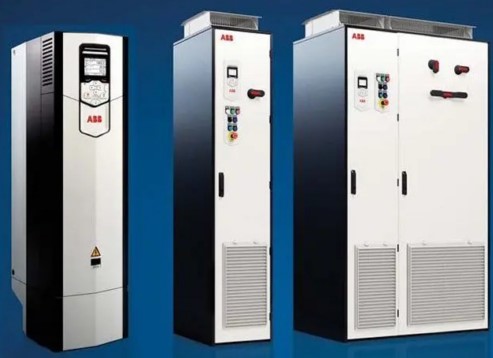
Some ACS880 drives support multi-motor applications, allowing you to control multiple motors from a single drive unit. The ACS880 also includes several safety features to ensure safe operation.
In terms of communication, this equipment offers various fieldbus protocols such as Modbus, Profibus, and Ethernet-based protocols such as EtherCAT and Profinet.
ABB ACS880 Fault Codes
Here is ABB ACS880 fault codes list.
- F0001 - Internal fault.
- F0002 - Loss of communication.
- F0005 - External fault.
- F0006 - Hardware fault.
- F0020 - Motor phase loss.
- F0023 - DC link fault.
- F0042 - Overcurrent.
- F0071 - Overtemperature.
- F0072 - Communication faul.
- F0120 - Encoder fault.
Common Fault Codes in ACS880 Drives and Recommended Actions
Below are some common ABB ACS880 fault codes and recommended troubleshooting steps.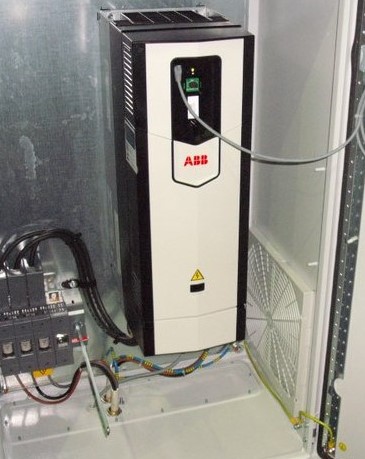
F0001 (internal fault)
Description: This DTC indicates an internal drive failure.
Recommended action: Contact ABB technical support for further assistance.
F0023 (DC link fault)
Description: This DTC indicates a problem in the DC link circuit of the drive.
Recommended action: Check the DC link voltage and connections. Check that the DC link capacitors are working properly. Inspect the power modules and control board. If necessary, contact ABB Technical Support.
F0024 (overcurrent)
Description: This DTC indicates that the drive has detected an overcurrent condition.
Recommended action: Check the motor and cables for short circuits or mechanical problems. Make sure the motor parameters are set correctly in the drive configuration. If the problem persists, contact ABB Technical Support.
F0026 (motor phase failure)
Description: This DTC indicates a phase loss in the motor.Recommended action: Check motor connections and make sure all phases are connected correctly. Inspect the motor windings for damage. Check that the motor parameters are correctly configured in the drive. If necessary, contact ABB Technical Support.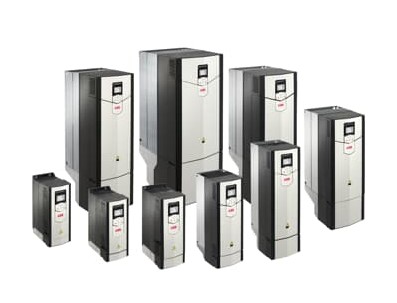
F0072 (communication failure)
Description: This DTC indicates a communication failure between the drive and external devices or systems.
Recommended action: Check communication cables and connections. Make sure the communication settings in the drive match the requirements of the connected devices or systems. Make sure the communication protocols are set up correctly. If necessary, contact ABB Technical Support.
F0110 (engine overheating)
Description: This DTC indicates that the engine temperature has exceeded a set limit.
Recommended Action: Check the engine cooling system such as fans or radiators to ensure proper operation. Inspect the motor for obstructions or excessive load. Verify that the drive thermal protection settings are appropriate for the motor. If the problem persists, check the engine or installation conditions.
Fault Code Prevention and Maintenance
Proper maintenance practices are essential to prevent ABB ACS880-01 fault codes and ensure the trouble-free operation of the drive.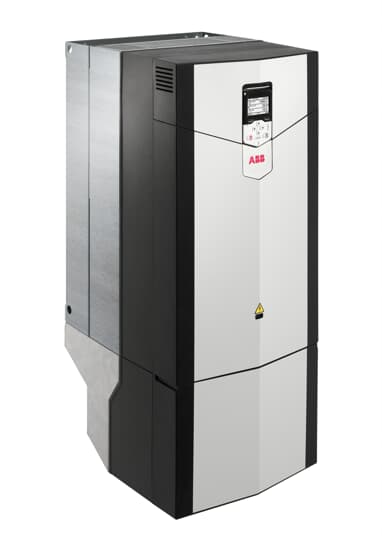
- Regular checkups. Perform regular visual inspections of the drive, motor, and associated equipment. Look for any signs of damage, loose connections, or abnormal operating conditions.
- Purity. Keep the disc and its surroundings clean and free from dust, dirt, and debris. Clean the cooling fans regularly and provide adequate ventilation for proper heat dissipation.
- Electrical connections. Check electrical connections for tightness and proper insulation. Loose or faulty connections can cause trouble codes and performance issues. Tighten any loose terminals and inspect cables for signs of wear or damage.
- Cooling system. Make sure the cooling system, such as fans or heatsinks, is working properly. Clean or replace cooling components as needed to maintain optimal cooling performance and prevent overheating.
- Environmental conditions. Maintain appropriate environmental conditions for the drive and motor. Keep equipment away from excessive heat, moisture, vibration, and corrosive substances.
- Parameter settings. Review and verify the parameter settings in the drive configuration. Verify that the motor parameters, voltage levels, current limits, and other settings are entered correctly and match the motor specifications.
- Firmware updates. Stay up to date with the latest firmware updates and software releases provided by ABB. These updates often include bug fixes, performance improvements, and improved error code handling.
- Load conditions. Avoid overloading the drive or sudden load changes. Make sure the drive is sized to match the motor and application requirements.
- Documentation. Keep records of maintenance activities, parameter settings, and any changes made to the drive configuration. This information may be useful for troubleshooting and future use.
- Training and support. Ensure that personnel responsible for the operation and maintenance of the ACS880 drive are properly trained. In case of any doubts or problems, refer to the product documentation or contact ABB Technical Support for assistance.
Importance of regular maintenance and inspections
Regular maintenance and inspections of ABB ACS880 drives are necessary for several reasons.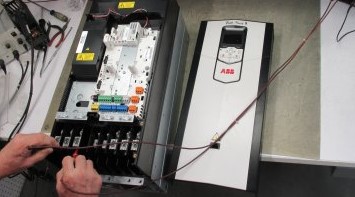
- Increased equipment life. Regular maintenance helps identify and correct potential ABB ACS880 manual faults before they develop into serious problems. By identifying and fixing small problems early, you can extend the life of your ACS880 and associated equipment.
- Prevent costly breakdowns. Regular checks allow you to identify and correct minor faults or wear and tear that can lead to equipment failure. By addressing these issues early, you can prevent costly breakdowns, production downtime, and associated financial losses.
- Ensuring optimal performance. Proper maintenance ensures that the ACS880 drive operates at peak performance. Regular checking and adjustment of parameters, cleaning of cooling components, and checking of electrical connections optimize the efficiency and performance of the drive.
- Increased security. Faulty electrical connections, damaged cables, or faulty components can pose a safety hazard. Regular checks help identify and correct such problems, reducing the chance of electric shock or accidents.
- Energy efficiency. Properly maintained ACS880 drives operate more efficiently, minimizing energy wastage and lowering operating costs. Regular maintenance activities, such as cleaning the cooling fans and optimizing parameter settings, help improve energy efficiency.
- Compliance with manufacturer's recommendations. ABB provides maintenance instructions and recommendations related to ACS880 drives. Following these guidelines ensures compliance with manufacturer requirements, warranties, and support agreements.
- Early detection of abnormal situations. Regular checks allow you to monitor the performance of the ACS880 and identify abnormal situations or trends. Unusual noises, vibrations, temperature fluctuations, or other signs of wear can be detected at an early stage, allowing timely intervention to prevent serious malfunctions.
At Eltra Trade, explore a diverse range of ABB ACS880 Low Voltage Single Drives. Our managers assist with selection and ensure swift global delivery.